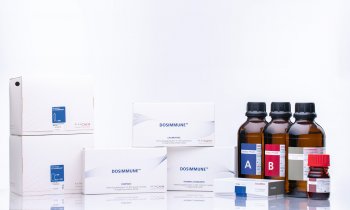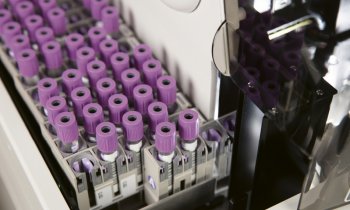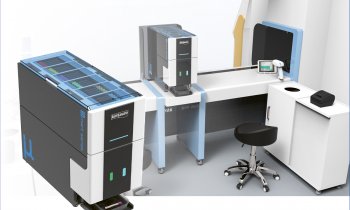© Artem Podrez – unsplash.com
News • Neurodegenerative disease
Alzheimer's: middle-age brain biomarkers give an earlier shot at prevention
A Finnish population study shows that signs related to Alzheimer’s disease may already be found in the brain in middle age. In the future, blood-based biomarkers associated with Alzheimer's disease could allow earlier detection of the disease.
This would allow preventive treatment to be targeted at the right individuals while the disease is still at the mild stage.
As the population ages, Alzheimer's disease and other dementing diseases are becoming more common. The disease processes leading to symptoms begin years or even decades before any decline in cognitive functions, such as memory, becomes apparent. A study conducted at the University of Turku in Finland found that even middle-aged individuals may have high levels of blood-based biomarkers associated with Alzheimer's disease, and the levels are higher with increasing age. The research results have been published in the Lancet Healthy Longevity.

Image source: University of Turku
A novel finding was that a high biomarker concentration in the parent, particularly mother, may be associated with higher biomarker levels in the middle-aged offspring. In addition, the researchers found that kidney disease may be linked to higher levels of biomarkers already in middle-age.
The APOE ε4 gene, which increases the risk of Alzheimer’s disease, was associated with higher blood-based biomarker levels in older age, but not yet in middle age.
Recently, it has become possible to identify biomarkers associated with Alzheimer's disease through a blood sample. In the future, this offers a cost-effective method for identifying those at greatest risk of developing Alzheimer's disease and prioritising them for preventive treatments. “In clinical practice, detecting beta-amyloid pathology associated with Alzheimer’s disease currently requires imaging studies or cerebrospinal fluid sampling. However, recently developed ultrasensitive measurement technologies now allow the detection of Alzheimer’s disease-related brain biomarkers from blood samples,” says Suvi Rovio, Senior Researcher at the Research Centre of Applied and Preventive Cardiovascular Medicine at the University of Turku, who led the study.
It is not yet possible to definitively diagnose Alzheimer's disease with a blood sample, as the method is still limited by the lack of well-known reference values. Additionally, it remains unclear which confounding factors influence biomarker concentrations in blood related to Alzheimer’s disease. Therefore, the interpretations of the biomarkers obtained from blood sample could lead to misdiagnosis. “In order to reliably use blood-based biomarkers for Alzheimer’s disease diagnosis in the future, more research is needed across different population and age groups to standardize reference values," highlights Rovio.

Image source: University of Turku
In the study, biomarkers associated with Alzheimer's disease were measured from blood samples of middle-aged participants (aged 41–56) and their parents (aged 59–90), with a total sample size of 2,051 individuals.
“Until now, brain biomarkers associated with Alzheimer's disease have mainly been studied in older individuals. Our study provides new insights into biomarker levels and associated factors starting from middle age," says Marja Heiskanen, Senior Researcher at the Research Centre of Applied and Preventive Cardiovascular Medicine at the University of Turku.
The study is part of the national Cardiovascular Risk in Young Finns Study coordinated by the Research Centre of Applied and Preventive Cardiovascular Medicine at the University of Turku in Finland.
Source: University of Turku
15.07.2025











